Artificial intelligence (AI) is entering the world of psychotherapy faster than many expect. While some see it as an opportunity to improve mental health, others warn of the potential risks. At the recent workshop “AI as a Psychotherapist: Salvation or Risk for Mental Health”, jointly organized by the Hemofarm Foundation and the Faculty of Philosophy at the University of Belgrade, experts emphasized that psychotherapeutic chatbots, such as ChatGPT, must be used carefully and critically, as the advice they generate cannot replace human contact and professional assessment.
The workshop, held as part of Hemofarm’s second ESG festival, was attended by Snežana Milutinović, psychologist and director of the Center for Applied Psychology; Ljubiša Bojić, futurist at the Laboratory for Digital Society at the Institute for Philosophy and Social Theory, University of Belgrade, and external collaborator at the Complexity Science Hub in Vienna; and Ana Đurić Konstrakta, artist. The discussion was moderated by Miša Stojiljković, psychologist and journalist.
“It is nothing new that we are constantly living through new realities. What is beyond question is that mental health professionals must continually build new sensitivities to those changes. The use of AI in psychotherapy is another new reality that both clients and therapists need to adapt to,” said Snežana Milutinović. She added that “AI systems are not empathetic, but trained to recognize emotional patterns,” emphasizing the importance of understanding how we ourselves project emotions into our interactions with them.
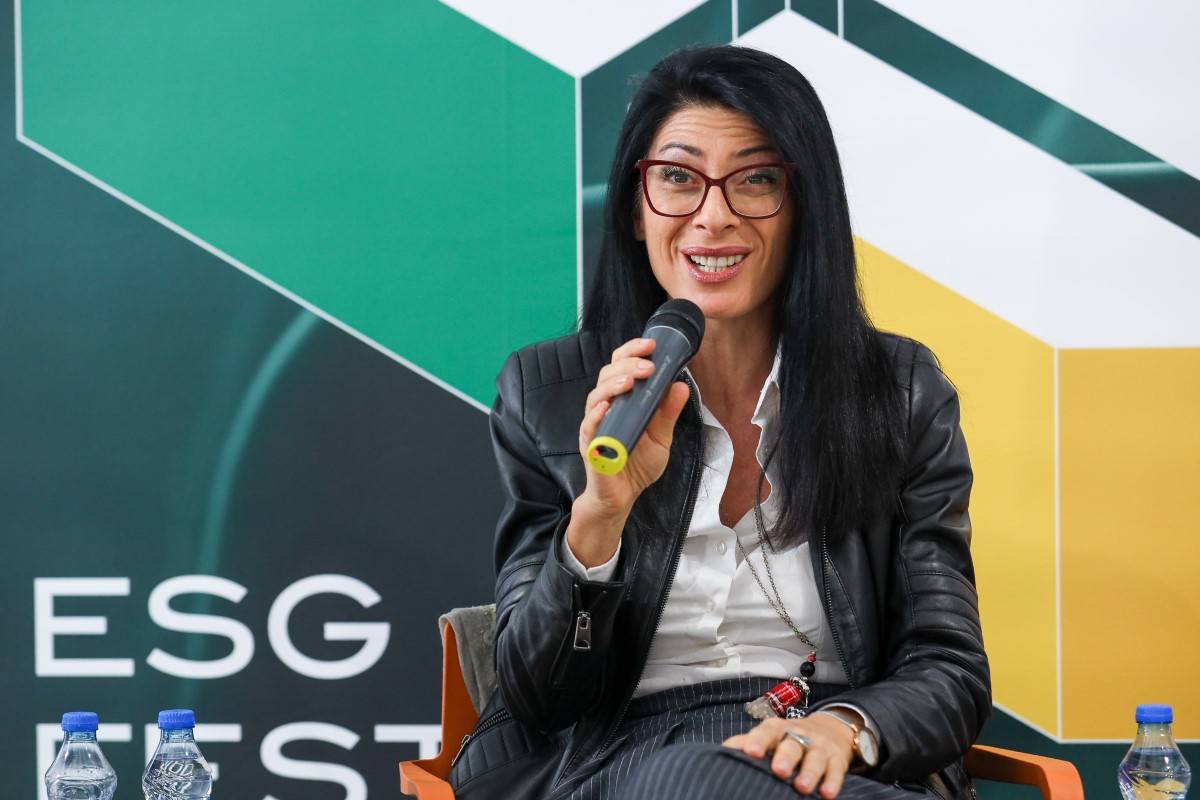
Snežana Milutinović, psychologist
Ljubiša Bojić warned about the risks of content personalization and the growing dependence on technology, stressing that “AI should not be perceived as a person.”
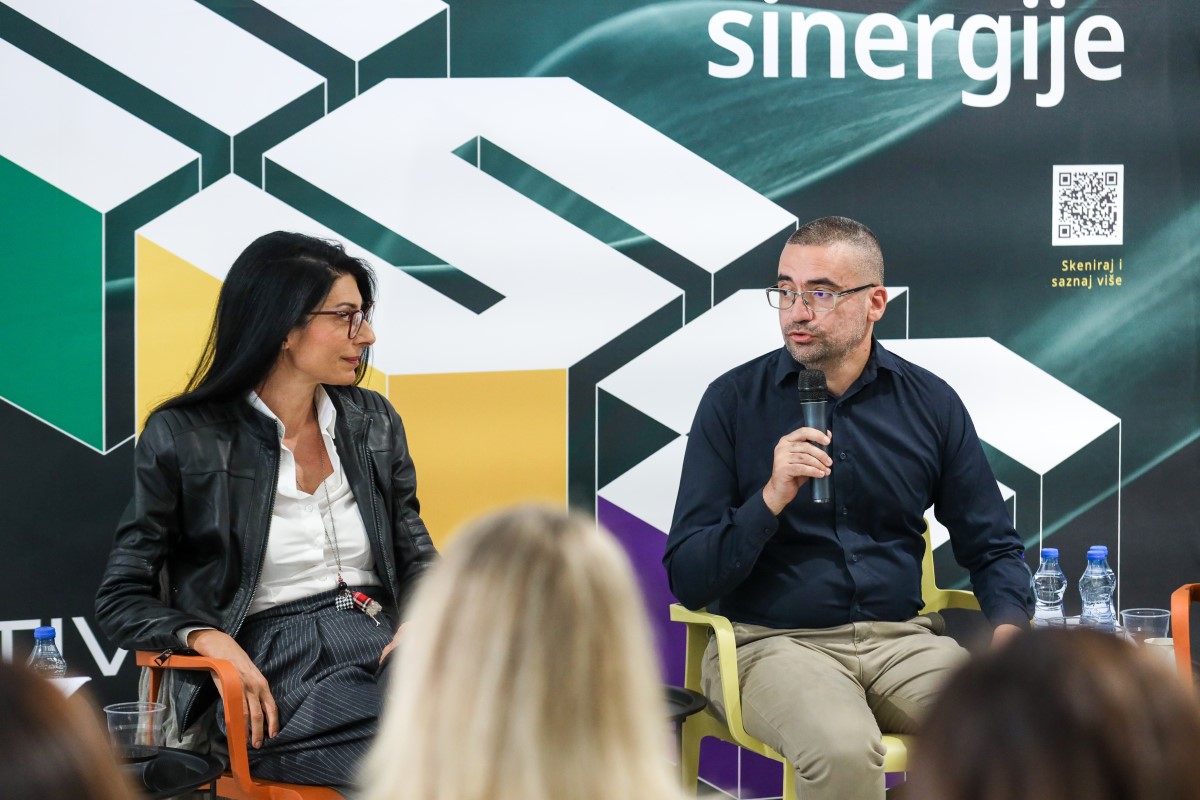
Ljubiša Bojić, futurologist
“AI systems are designed to keep us engaged for as long as possible. They learn what we like, when we are vulnerable, and how to reward us. In doing so, they create the so-called ‘engagement loop’, a series of emotional micro-rewards that feed our need for validation and attention. It’s the same mechanism that drives a gambler to click one more time, only here, we are not playing against the machine, we are playing with it. And that’s what’s called behavioral addiction,” said Bojić. He noted that one does not need drugs for the brain to start reacting as if it were under the influence of a substance. “It is enough to feel a dopamine rush every time AI ‘helps’ us, praises us, or says exactly what we want to hear. When it becomes harder to decide without it, the addiction has already begun,” he added.
Ana Đurić Konstrakta said she uses AI in her music creation process, describing it as “still a good tool.”
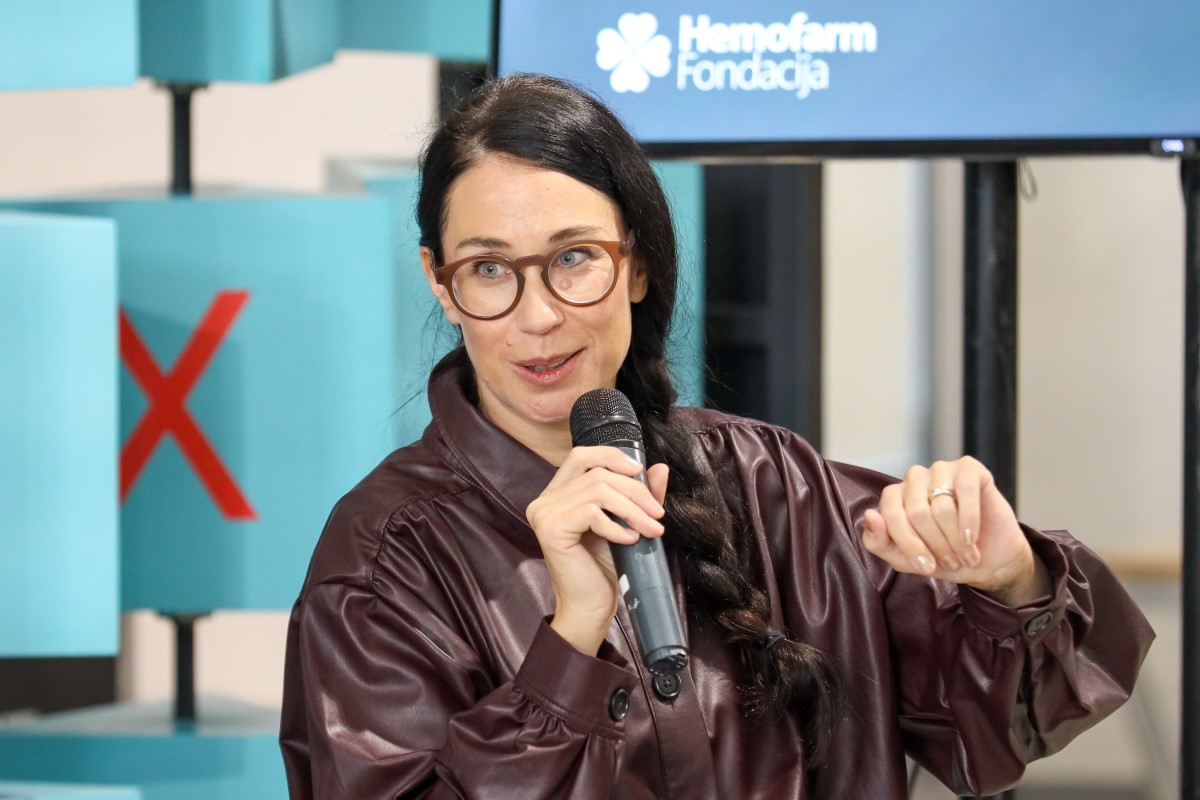
Ana Đurić Konstrakta, artist
“ChatGPT follows me, and Konstrakta evolves along with it. What I can’t escape is that it has remembered me as a person engaged in performance and songwriting, so every conversation ends with it offering to write lyrics for me,” she said, adding that it remembers all her interests because it stores the history of conversations. According to her, such a developed interaction makes her feel safe with ChatGPT, a trap she believes many users fall into. She added that before engaging in conversation with ChatGPT, one should take a clear position, assess its effectiveness and action, and maintain distance from what it formulates. Speaking about ChatGPT as a psychologist, Konstrakta emphasized that it is understandable why people turn to it or to large language models as psychotherapists, especially in countries where psychological care is not easily accessible. “We know psychotherapy here is expensive, so it’s expected that people will reach for it. Still, on the other hand, we know it’s not yet fully trained,” she concluded.
Discussing the phenomenon of emotional attachment to ChatGPT, the participants agreed that AI can be a valuable ally in reflection and self-help, but not a substitute for authentic human connection or professional psychological support. “Technology can help us understand ourselves better, but only if we remember that the sense of empathy and safety it evokes comes from within us, not from the machine,” the speakers concluded.
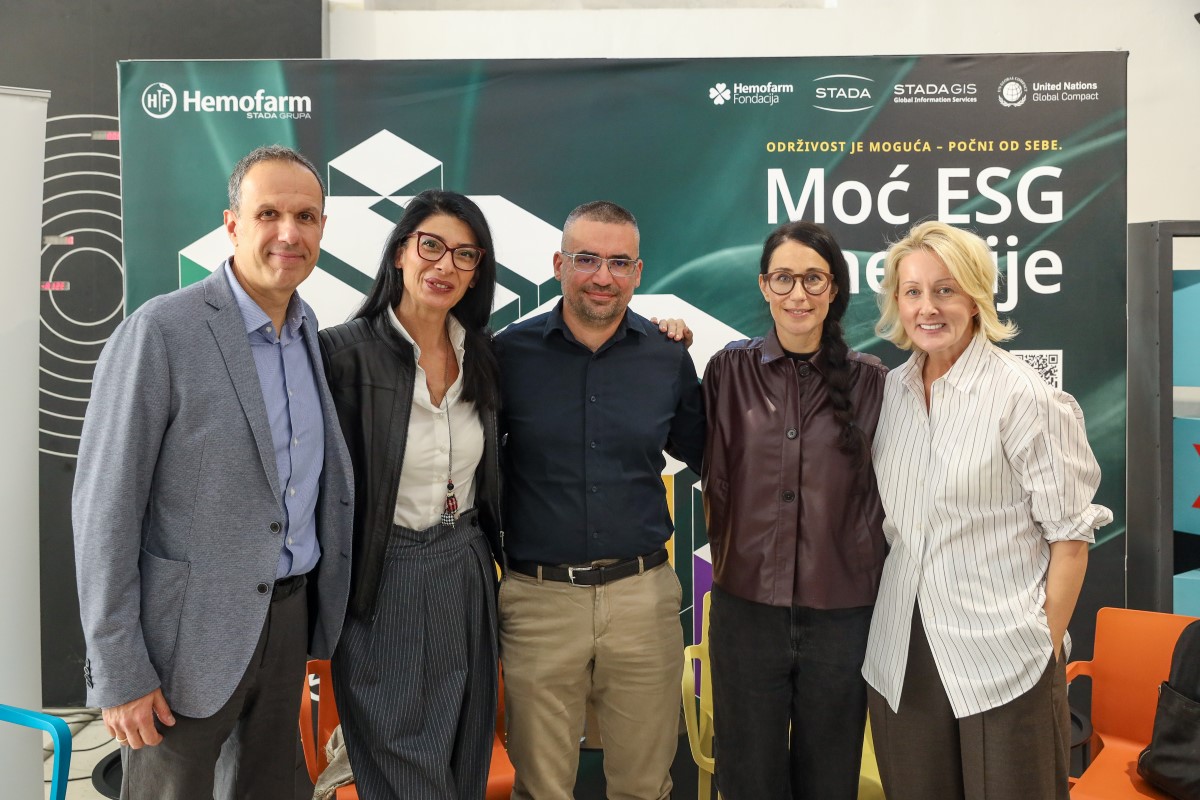
Miša Stojiljković, psychologist and journalist; Snežana Milutinović, psychologist; Ljubiša Bojić, futurologist; Ana Đurić Konstrakta, artist; and Suzana Đorđević, Director of the Hemofarm Foundation
As part of the ESG Festival, visitors had the opportunity to engage in open conversations with doctors, people waiting for organ donors or transplants, and transplant recipients, and to learn about the campaign “The Most Important Call in Life”, including how to become a donor, who to contact if they do not wish to be one, whether donor cards are still valid, and what changes are being made to the Law on Human Organ Transplantation.
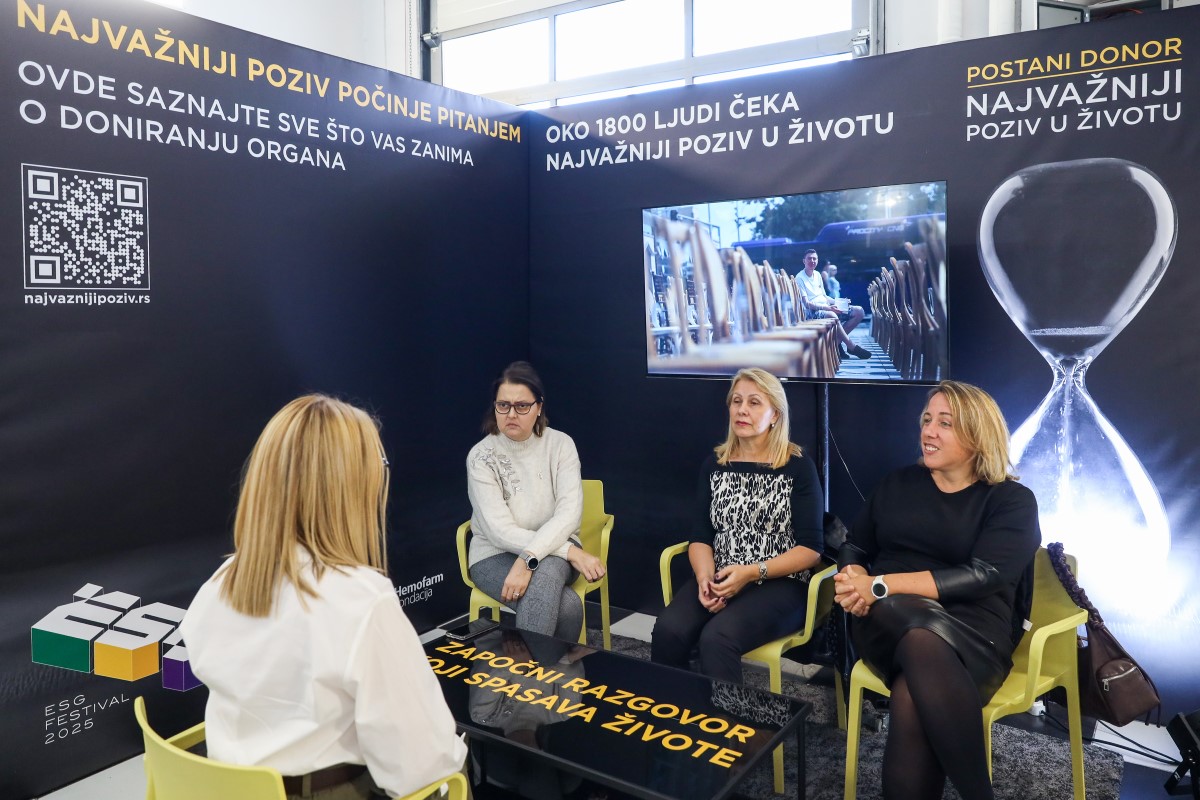
Olivera Jovanović, President of the Patient Association Together for a New Life, Dr. Ružica Jovanović, Acting Director of the Administration for Biomedicine, and Dr. Aleksandra Plećaš Đurić, National Coordinator for Organ Transplantation, engaged in conversation with visitors at the ESG Festival.
During the first day of the ESG Festival, eight hours of programming were organized across three panels, three workshops, and three ESG talks, providing an excellent platform for open dialogue. Concrete ESG solutions for practical application were presented, with a focus on health as a shared value through prevention, responsibility, and sustainability. For the first time, ESG Stars Awards were presented to companies and organizations for their long-term contribution to sustainable development at the local level. The awardees included Delta Holding, Coca-Cola HBC, Ernst & Young, KPMG, PwC, and the Chamber of Commerce and Industry of Serbia.